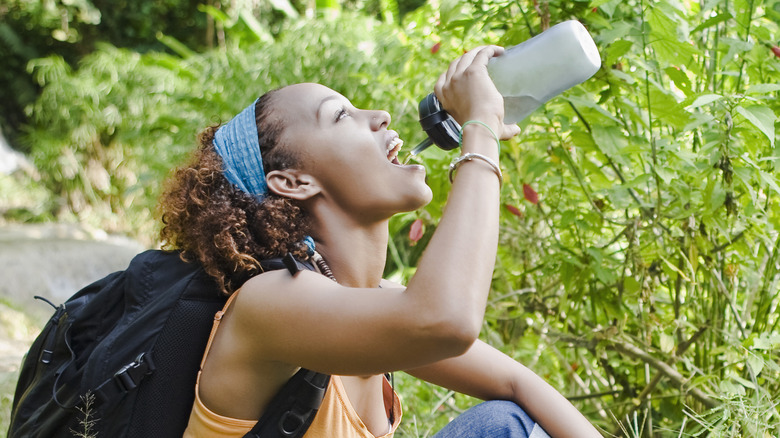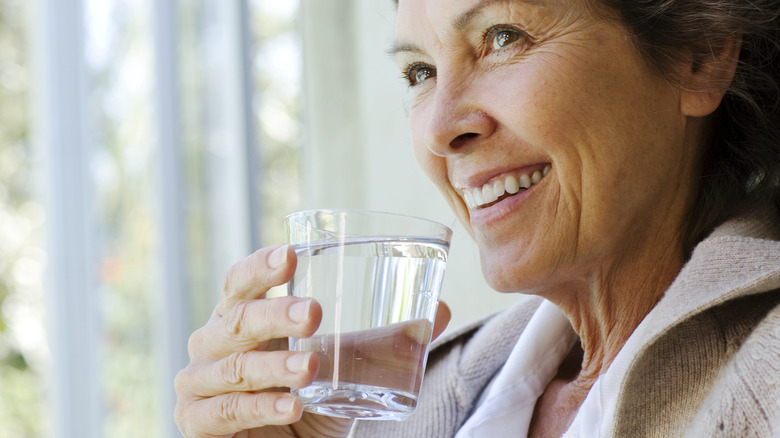What Happens To Your Back When You Don't Drink Enough Water
Water plays a critical role in sustaining most of your body's functions. On average, your body is made up of 60% water, and most of that water is in your cells. Your brain, heart, and kidneys have the highest percentage of water, so you can understand what might occur if you don't drink enough water (per Medical News Today). Losing just 1% of the water in your body could show signs of dehydration, according to Arrowhead Clinic. For someone who weighs 140 pounds, that's about 13 ounces of water. If you notice symptoms such as bad breath, headaches, anger, or fatigue, you could be dehydrated.
One thing you might not notice if you're dehydrated is back pain. The discs in your spine provide cushioning for the vertebrae as you bend and twist throughout the day. According to Narayana Health, these discs are 75% water. When your body is dehydrated, you lose some of the cushioning for the vertebrae, which can pose problems with mobility and pain.
Your body rehydrates your discs at night
As you move around during the day, gravity puts a lot of pressure on your back. It's up to the spine's discs to protect your vertebrae from this compression. When they lose water, there is more wear and tear on the vertebrae as space shrinks between them. The outer layer of these discs can become damaged, causing bulging or herniated discs that can press into your sciatic nerve. This is what can cause radiating pain down your leg, according to Narayana Health.
These discs tend to lose their hydration throughout the day. Because you're mostly upright during the day and continually compressing the discs, it's difficult for your body to rehydrate the discs. In fact, you might notice you're up to half an inch shorter by the day's end because there's less space between the discs due to reduced hydration, according to Arrowhead Clinic. At night, while you're asleep, your body works to rehydrate those discs, restoring your height when you wake up.
How to tell if you're dehydrated
According to Trifecta Nutrition, a good daily aim for your water intake is half your body weight in ounces. You'll need about 12 more ounces of water for every 30 minutes of activity, and perhaps more when it's hot outside. While thirst, dizziness, and fatigue can be symptoms of mild hydration, you can also check the color of your urine. Dark yellow urine is often a sign of dehydration. You can also try the pinch test by pinching the skin on the back of your hand. You might be dehydrated if the skin takes its time to restore itself (per Arrowhead Clinic).
Water is the best source for your hydration needs, but you can also hydrate through fruit juices. Stay away from coffee, tea, or sugary beverages, especially if you know you're already dehydrated, because you'll need to consume much more fluids. Many vegetables and fruits are also good for hydration.
People with health conditions such as diabetes or alcohol use disorder are prone to dehydration, according to NHS Scotland. Older adults are also more susceptible to dehydration because they might not be as diligent in maintaining their fluid needs. Because athletes lose a lot of water through sweat, they are at a higher risk for dehydration.



